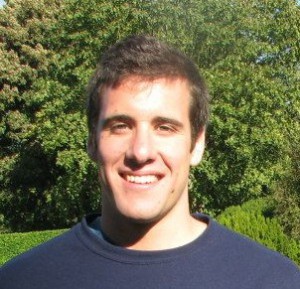Junior
Major: History
CFS Program: Legal Field Studies
A couple of weeks ago I began interning at CARPLS- a legal aid organization that provides assistance to low-income Cook County residents confronted with everyday legal issues. In that time, I have conducted a study investigating the effectiveness of one of CARPLS’ services, sat in on a director’s meeting, engaged with Chicagoans seeking counsel from CARPLS’ Advice Desks in the Cook County courthouse, observed court proceedings, delved into court files, learned some legal jargon, and helped CARPLS transition to a new software program.
CARPLS, which was founded in 1993, was the first legal aid organization of its kind in that it was the first legal aid hotline in the U.S. Today, it assists about 50,000 clients a year with a variety of legal issues. Somewhat amazingly, 85% of cases CARPLS handles are resolved in house, while others are referred to more specialized legal aid clinics in the Chicago area. This statistic is pretty incredible, but CARPLS experiences such a high volume of callers that only around 30% end up getting served. This is indicative of perhaps the most important thing I have learned so far during my internship: that the demand of free or nearly-free legal aid services greatly eclipses the supply available to those who need them most.
One of CARPLS’ main goals is to restore the faith of low-income Cook County residents in the legal system. Oftentimes clients turn to CARPLS when they find they have nowhere else to go for help, so CARPLS aims to provide clients with free or very cheap access to attorneys who will patiently listen to what they have to say and give them the same advice they would give their own family members and close friends.
While the work CARPLS does is invaluable for the Chicago area community, it is sometimes hard to believe that the justice system is an institution that can work for those living in poverty. For example, people living below the poverty line may be more prone to being taken advantage of by landlords, or they may not be able to get a fee waiver from the court and therefore may not be able to afford pursuing legal action, or they may not have enough job security to be able to take a day off to appear in court. These are just some ways the deck may be stacked against those struggling financially. So far, my internship with CARPLS has really opened my eyes to some of the uphill battles low-income Cook County residents may be confronted with when trying to resolve their legal issues. It has also given me a wonderful opportunity to explore one area of the legal field, build professional relationships, and gain valuable experience working in downtown Chicago, all while earning class credit. In the remaining weeks of the quarter, I hope to continue to interact with clients and leave a lasting, tangible impact on CARPLS.
